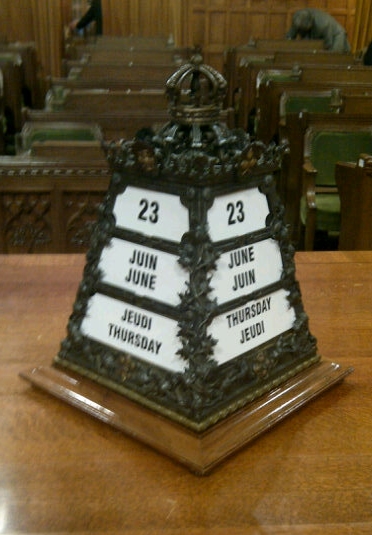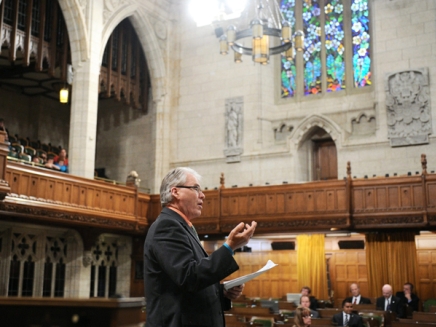58 hours later, we’ve learned a lot about the 41st Parliament that Canada elected on May 2nd. But more than anything else, we have seen politics injected with principles in a way the system has sorely lacked.
At 10:30 AM on Thursday, June 23rd, debate began in the House of Commons on Bill C-6, which would send Canada Post employees back to work under a legislated bargaining agreement. It would then require an arbitrator to make a binding decision between the offer made by the employers and the Canadian Union of Postal Workers. CUPW had engaged in two weeks of rotating strikes before Canada Post began a lockout, citing increased operating losses from the strike.
Three days later, Hansard closed the book on the 23rd, with continuous debate on various motions relating to the bill’s passing, with the Conservative majority eventually successful in passing the bill without amendments. The NDP Official Opposition used a procedural rule which permits every MP 20 minutes to speak on any motion before the house. From a motion to delay the bill by six months to, farcically, a motion to call the question, debate rolled overnight into St. Jean Baptiste’s day, the Fete National in Quebec, and out the other end, finally wrapping up the House of Commons for summer break at around 8 PM.

The Commons desk calendar did not roll over during the course of the debate. Photo by Michelle Rempel.
The novelty of the situation wore off, I think, by the second night. What the filibuster meant, however, is up for debate (no pun intended). There was no literal effect from the action–no deal was cut outside the house and no amendments to soften the bill passed inside of it, so little would be procedurally different if the debate had wrapped up in hours on Thursday. This is an effect of the control political parties have on the Canadian parliamentary system, where there are no independent MPs and the vote is known to pass along party lines before it is taken. So was it a waste, or stunt? Clearly, something still happened.
Much was written before the election about how the political system had been seen to fall into an unprincipled malaise. As Andrew Coyne wrote:
To be perfectly clear: absolutely nothing is at stake in Canadian politics. There is no clash of visions, no conflict of values, because neither party has any. Nothing is riding, therefore, on the outcome of any election. It simply does not matter who wins.
The threat of a constant election didn’t just bind the government’s hand, but the opposition–after they backed down from defeating the budget in 2009, they were too light in order to avoid being too heavy. With everything at stake procedurally, they opted often to pick their battles. But now, with nothing at stake procedurally (and a new party in the Office of the Opposition), the only thing at stake was something that might have been previously absent from Parliament: principles.
Not everyone was game–certainly not the Liberal party, who tut-tutted on occasion throughout the debate, breaking up the rhythm of NDP speeches about unions and Conservative replies. But this was a staring contest lead by the NDP and enjoyed, sometimes, with relish by the Conservatives, who spoke much more than they needed to in a filibuster that relied on the length of individual speeches; “To pass the bill, you’ll need to last as long as we can talk, and we can talk for a long time.” “Well, we are going to pass the bill, and we can talk as well.”
So this is an opposition that is going to stick to its guns. Layton’s fifty minute speech on Thursday night was a loud invective that could pacify those worrying that the party will drift into the centre. They clearly possess muscle, and they can be counted on to do what they say. This Parliament’s benches are full of interesting people that have been more important here than they have in some time–Ryan Leef and Steven Fletcher impressed on the government side, as well as a bevy of new NDP MPs–Alain Giguere, with his goofy mustache! Ruth-Ellen Brosseau spoke, in French!–that can count Rathika Sitsabaiesan, Yves Godin, and Peter Julian as standouts. Elizabeth May made her new seat count, sitting in the House for over 41 consecutive hours. Almost all of them deserve respect for standing up for their constituents in what was for Parliamentarians an extreme experience.
And standing up for your beliefs is important. This was a meaningful act of defense for political ideas. Now, there is a clash, and now there are principles to defend. But for now, there is a summer break. We can be sure, this time, that the politicians deserve it.

